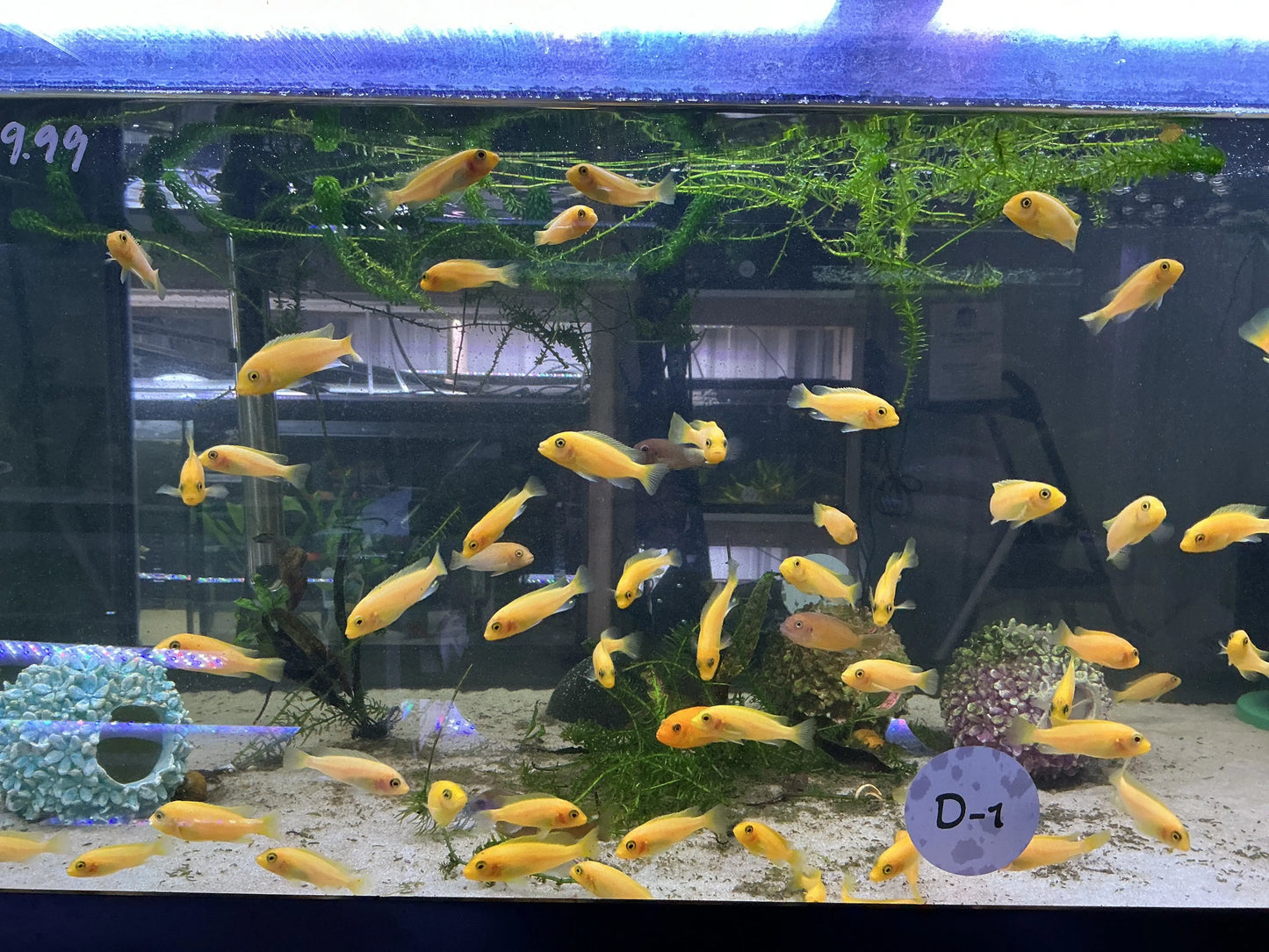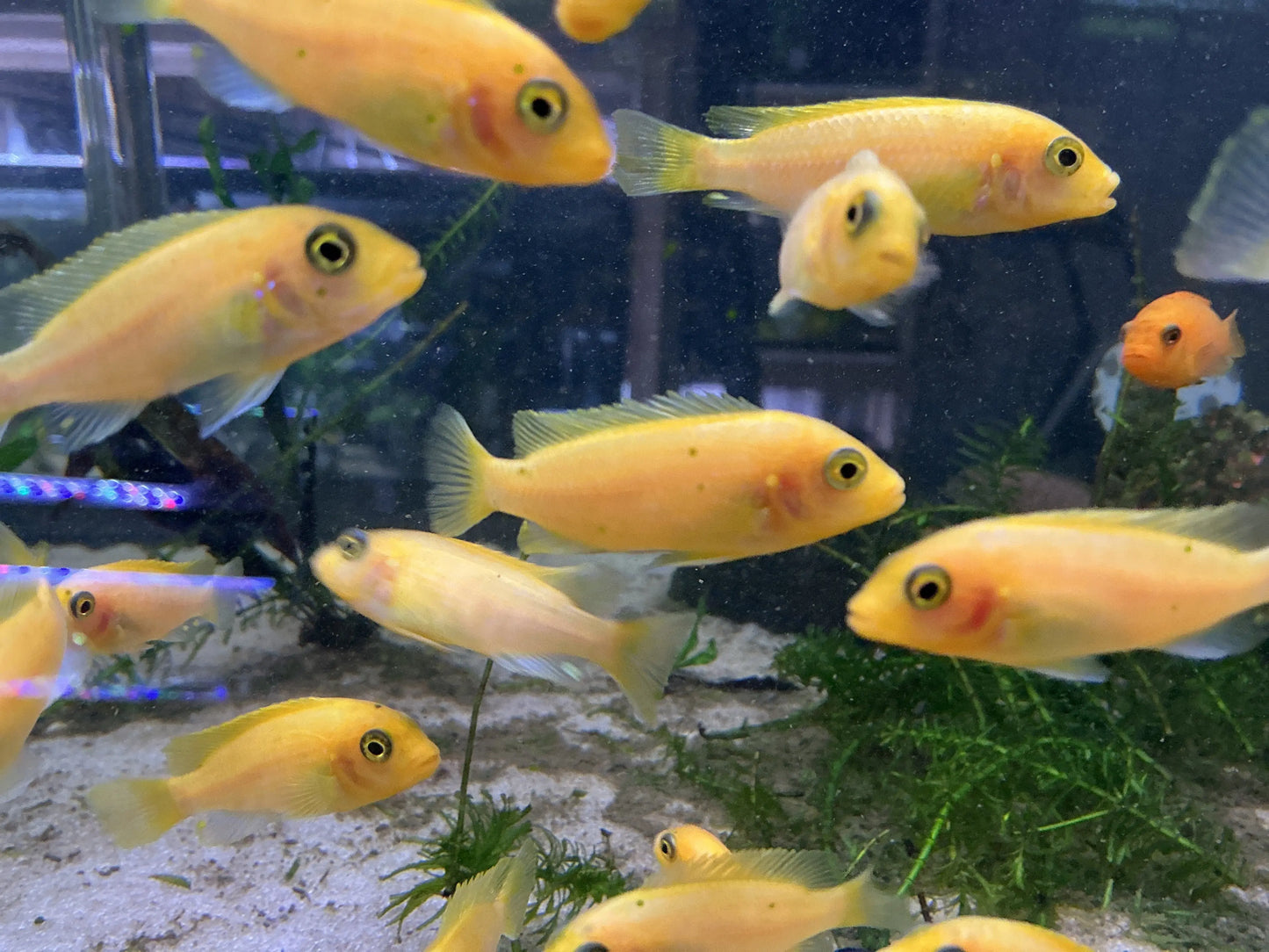Pseudotropheus estherae “Red Red” | Red Zebra Mbuna Cichlid
Pseudotropheus estherae “Red Red” | Red Zebra Mbuna Cichlid
25 in stock
Couldn't load pickup availability
💧 Pseudotropheus estherae “Red Red” | Red Zebra Mbuna Cichlid
📖 Overview The Pseudotropheus estherae “Red Red”, also known as the Red Zebra Mbuna, is a stunning freshwater African cichlid native to Lake Malawi. This variant is prized for its bold, solid red-orange coloration that adds vibrant contrast to any Mbuna aquarium.
Red Zebras are hardy, active, and territorial, making them a popular choice for intermediate to experienced cichlid keepers. They thrive in rocky aquascapes with plenty of hiding spots and do best in species-specific or mixed Mbuna setups.
🌟 Key Features
✅ Brilliant solid red-orange “Red Red” color morph
✅ Hardy and active Mbuna cichlid for African setups
✅ Best in rocky aquariums with caves and hiding spaces
✅ Ideal for experienced cichlid keepers
✅ Adds vibrant contrast to Lake Malawi aquariums
📐 Specifications
- Scientific Name: Pseudotropheus estherae “Red Red”
- Common Name: Red Zebra Mbuna
- Origin: Lake Malawi, Africa
- Care Level: Intermediate
- Temperament: Semi-aggressive / territorial
- Size: 4–6 inches
- Diet: Omnivore – spirulina flakes, pellets, vegetable matter, occasional protein
- Tank Size: 55+ gallons recommended
- Water Parameters:
- Temperature: 74–80°F
- pH: 7.6–8.6
- Hardness: 10–20 dGH
❓ FAQ
Q: Can Red Zebras live in community tanks?
A: They are best suited to Mbuna or African cichlid-specific setups due to their territorial nature.
Q: Do Red Zebras need live plants?
A: Not recommended—these cichlids often dig and may uproot plants. Opt for rocks and hardy decor instead.
Q: How many should be kept together?
A: Groups with a ratio of 1 male to several females help reduce aggression.
Q: What foods keep their color bright?
A: A spirulina and vegetable-rich diet enhances their red coloration.



